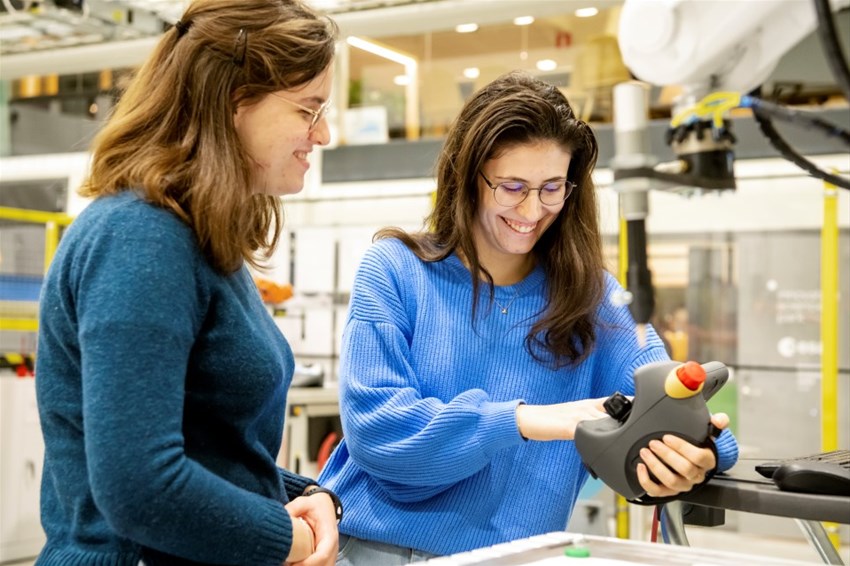The challenge of transferring new technologies to working practice
13 Jun 2022
Industry 4.0 is changing the working lives of many. Digitalisation requires new skills, new ways of collaborating, and new ways of managing and organising work. But how do you do it? Researchers at University West are looking for answers in collaboration with the industry.

New roles and ways of working await everyone working in manufacturing. Competence development will be a key issue over the next ten years. Photo: Kent Eng for University West.
Digitalisation means that many industry companies are investing heavily in new technologies. It is equally important to invest in staff competence development, and to understand the complexities of the technological transition.
‘The step from investing in new technologies to getting a working industrial practice is often longer and more complex than anticipated. It's not enough for the organisation to learn how to use the new technology, it must also work well with the systems and processes already in place,’ says Lars Walter, professor of Work-Integrated Learning with focus on digitalisation of industry, University West.
‘Industry leaders generally don't seem to be worried about the new technologies, but are more concerned with how employees will receive them. Before investing in a new robot fleet, for example, management needs to look through the eyes of the employees. How does the new technology affect the work of the operator, the middle manager, the financial officer and others? What new competencies do they need?’
‘Bringing in the technology first, and then figuring out what new knowledge and learning is needed doesn’t normally work. For the best results, staff must be involved in the process from the start. Costly mistakes can be avoided in this way, and the transition will be smoother and faster.’
Researching in collaboration with industry
Lars and his researcher colleagues at University West are looking into how the industry can integrate employees into the technological transition in a good way. One of several ongoing research projects, A-HIL, is identifying new working models and critical factors for organisation and learning.
‘It's about understanding how artificial and human intelligence can be cleverly integrated into companies' digitalisation process. It is a great learning process for all functions in the company.’
On integration between artificial and human intelligence – the A-HIL project
‘In the Restart project, we are studying how unexpected production stoppages occur, how to avoid failures and create solutions to facilitate restarts, for example by using an AI/AR system for operators and maintenance staff.’
On the problems surrounding unplanned production stops – the Restart project
----------------
University West is Sweden's leading university in Work-integrated learning. The Primus research environment combines technology and learning in a unique way. Engineers and social scientists research and learn alongside industry companies in a range of projects relevant to industry.
The Industrial Work-Integrated Learning research area focusses on the challenges of industry in three areas:
- Digitalisation.
- Competence development and lifelong learning.
- Transition for sustainable development.


